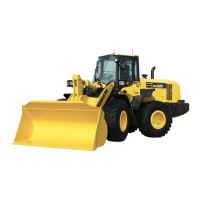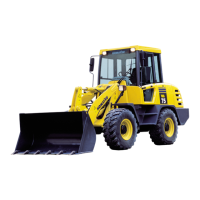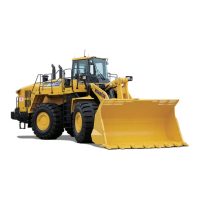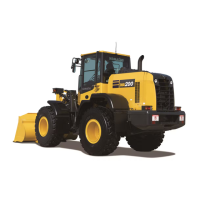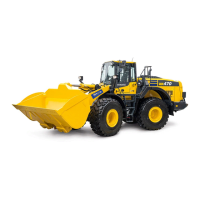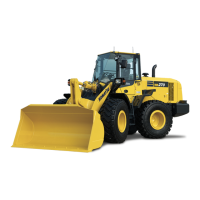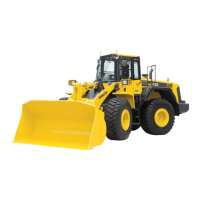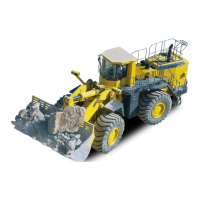OPERATION COLD WEATHER OPERATION
3-107
COLD WEATHER OPERATION 3
PRECAUTIONS FOR LOW TEMPERATURE 3
If the temperature becomes low, it becomes difficult to start the engine, and the coolant may freeze, so do as fol-
lows.
FUEL AND LUBRICANTS 3
Change to fuel and oil with low viscosity for all components. For details of the specified visicosity, see “FUEL,
COOLANT AND LUBRICANTS (4-9)“.
COOLANT 3
WARNING
q Antifreeze is toxic. Be careful not to get it into your eyes or on your skin. If it should get into your
eyes or on your skin, wash it off with large amount of fresh water and see a doctor at once.
q When changing the coolant or when handling coolant containing antifreeze that has been drained
when repairing the radiator, please contact your Komatsu distributor. Antifreeze is toxic, so do not let
it flow into drainage ditches or spray it on to the ground surface.
q Antifreeze is flammable, so do not bring any flame close. Do not smoke when handling antifreeze.
NOTICE
q Never use methanol, ethanol or propanol based antifreeze.
q Avoid using any leak-preventing agent, regardless if it is sold separately or in antifreeze.
q Do not mix one antifreeze with a different brand.
For details of the antifreeze mixture when changing the coolant, see “CLEAN INSIDE OF COOLING SYSTEM (4-
23)“.
Use a Permanent Antifreeze (ethylene glycol mixed with corrosion inhibitor, antifoam agent, etc.) meeting the stan-
dard requirements as shown below. With permanent antifreeze, no change of coolant is required for a year. If it is
doubtful that an available antifreeze meets the standard requirements, ask the supplier of that antifreeze for infor-
mation.
Standard requirements for permanent antifreeze
q SAE J1034
q FEDERAL STANDARD O-A-548D
REMARK
In areas where permanent antifreeze is not available, it is possible to use antifreeze whose main component is
ethylene glycol and does not contain any corrosion inhibitor. (Such antifreeze can be used for the winter season
only.) However, in such a case, the cooling water must be changed twice a year (spring and fall), so use perma-
nent antifreeze when possible.

